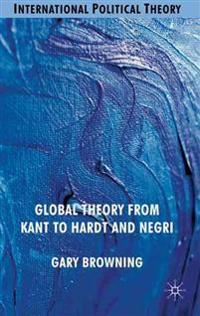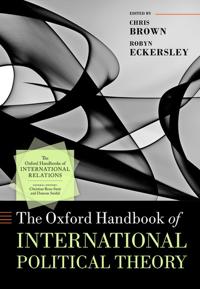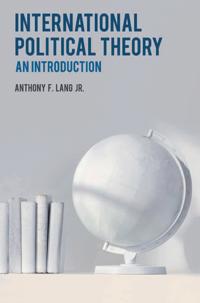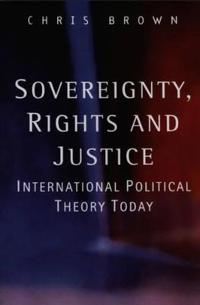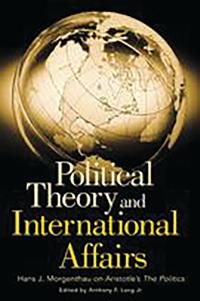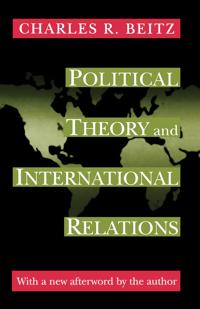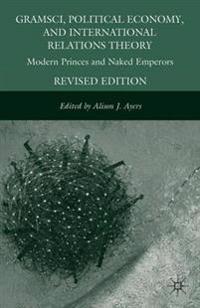Global Theory from Kant to Hardt and Negri (Inbunden)
avInternational Political Theory
ISBN: 9780230524736 - UTGIVEN: 201107Global theory represents an influential and popular means of understanding contemporary social and political phenomena. Human identity and social responsibilities are considered in a global context and in the light of a global human condition. A global perspective is assumed to be new and to superse[...]
The Oxford Handbook of International Political Theory
ISBN: 9780198746928 - UTGIVEN: 2018-05The essential volume for all those working on International Political Theory and related areas.
International Political Theory (Häftad)
avAnthony F. Lang
ISBN: 9780230292048 - UTGIVEN: 2014-11This innovative text explores international relations with the tools of political theory. In so doing, it contributes to and advances the idea of international political theory. The book focuses on four key concepts - authority, rules, rights, and responsibilities - and four important topics - wealt[...]
Sovereignty, Rights and Justice: International Political Theory Today (Häftad)
avChris Brown, Chris Brown
ISBN: 9780745623030 - UTGIVEN: 200207This volume surveys the relationship between international relations theory and political theory, showing the way in which these two discourses, once considered separate, are now intertwined. It is based firmly on the analysis of real-world problems.[...]
Political Theory And International Affairs
ISBN: 9780275980252 - UTGIVEN: 2004-11Hans J. Morgenthau is primarily considered a theorist of power politics, often associated with the "six principles of realism" and "the national interest." This book sheds a new light on the theorist by digging into his archives to show his wide-ranging views on politics. These selected lectures dem[...]
Routledge International Handbook of Contemporary Social and Political Theory (Häftad)
avPaul Cornell, , Saucer Country
ISBN: 9780415714464 - UTGIVEN: 201308The triangular relationship between the social, the political and the cultural has opened up social and political theory to new challenges. The social can no longer be reduced to the category of society, and the political extends beyond the traditional concerns of the nature of the state and politic[...]
Political Theory and International Relations (Häftad)
avCharles R. Beitz
ISBN: 9780691009155 - UTGIVEN: 199907In this revised edition of his 1979 classic "Political Theory and International Relations", Charles Beitz rejects two highly influential conceptions of international theory as empirically inaccurate and theoretically misleading. In one, international relations is a Hobbesian state of nature in which[...]
Gramsci, Political Economy, and International Relations Theory (Häftad)
avPat Cascio, John McSweeny
ISBN: 9781137304681 - UTGIVEN: 201302This book seeks to provide the most comprehensive and sustained engagement and critique of neo-Gramscian analyses available in the literature. In examining neo-Gramscian analyses in IR/IPE, the book engages with two fundamental concerns in international relations: (i) the question of historicity and[...]

